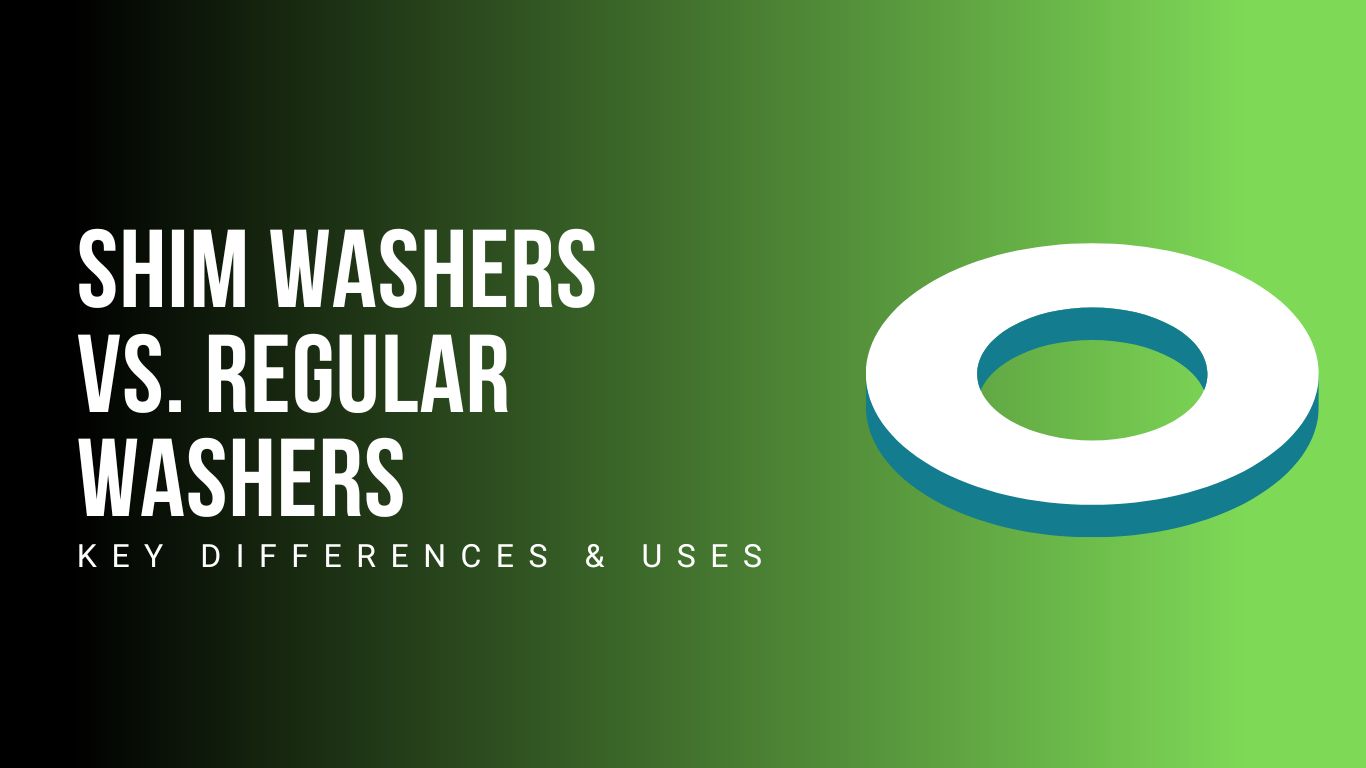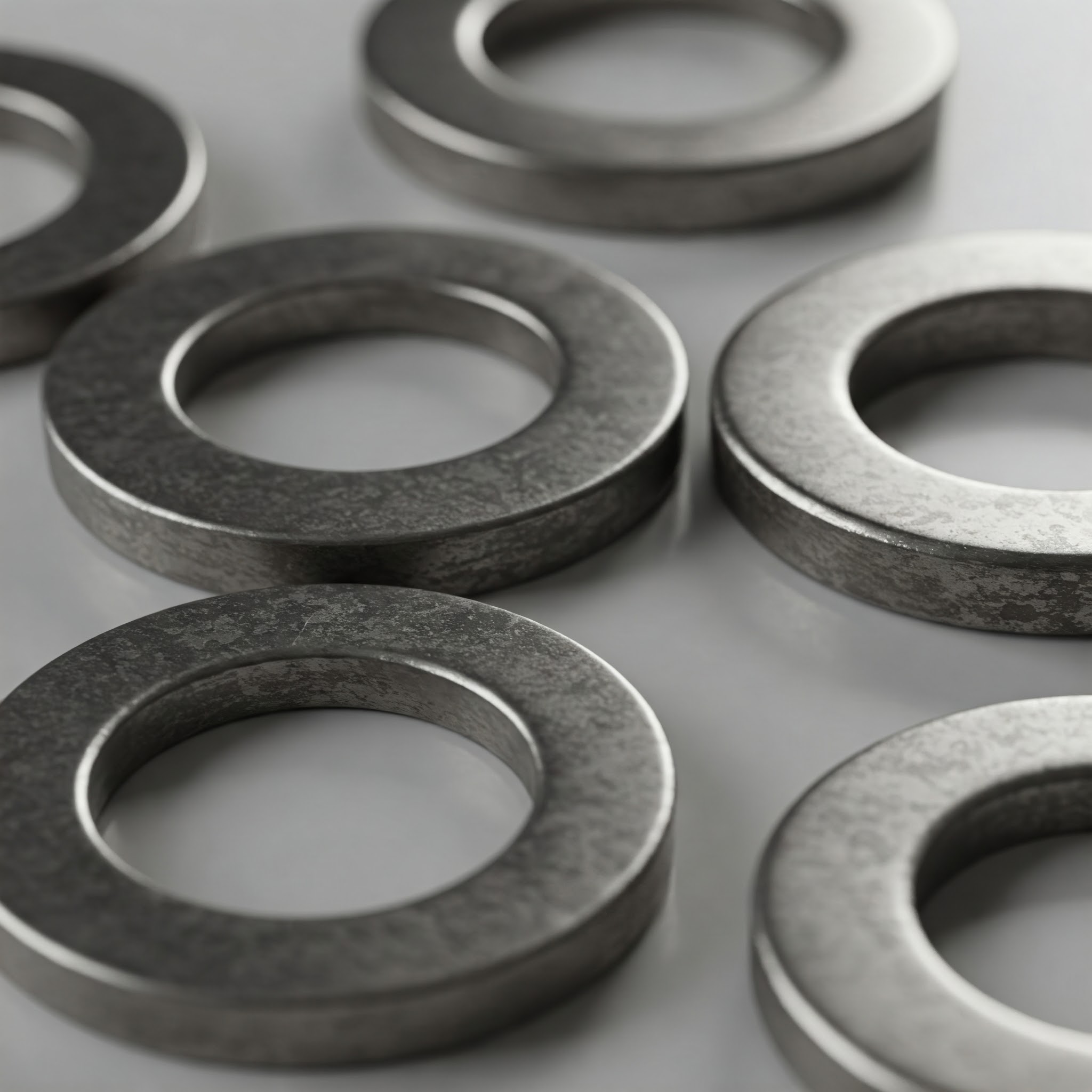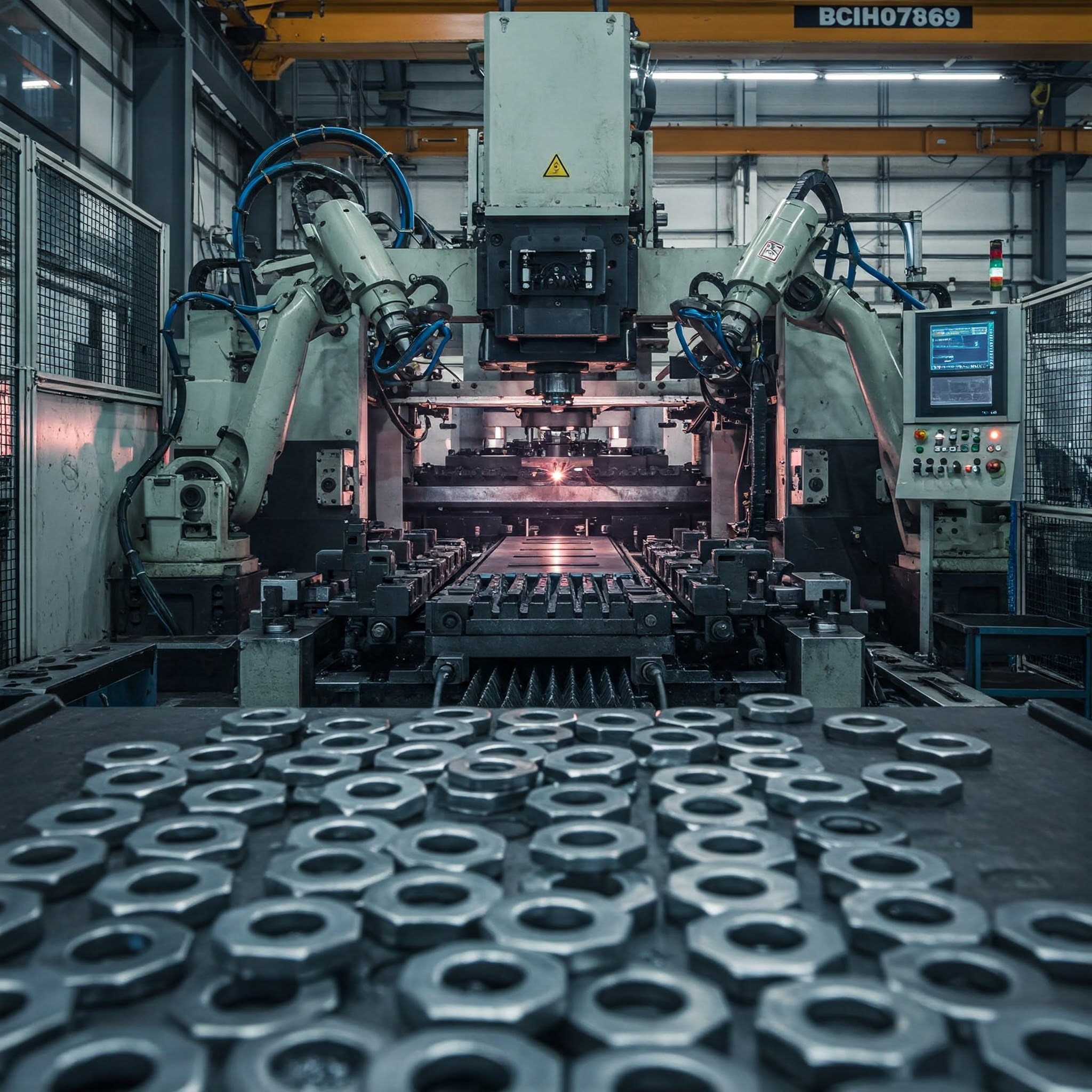Shim Washers vs. Regular Washers: Key Differences & Uses

Washers play a crucial role in mechanical assemblies, ensuring secure connections and proper load distribution. However, not all washers serve the same purpose. Shim washers and regular washers are two distinct types, each designed for specific applications.
If you work in industrial, automotive, or construction settings, selecting the right washer is essential. This article explains the differences between shim washers and regular washers, helping you determine which one best suits your needs.
Table of Contents
- What Are Shim Washers?
- What Are Regular Washers?
- Key Differences Between Shim Washers and Regular Washers
- When Should You Use Shim Washers?
- When Should You Use Regular Washers?
- Pros and Cons of Shim Washers vs. Regular Washers
- Which One Should You Choose?
- Conclusion
What Are Shim Washers?
A shim washer is a thin, precision-cut washer used to fill small gaps, adjust spacing, and align components in machinery and assemblies. These washers are particularly useful when fine adjustments are required.
Common Features of Shim Washers
Extremely thin, with thicknesses as low as 0.001 inches
Designed for fine adjustments and precision spacing
Manufactured from materials such as stainless steel, brass, plastic, and aluminum
Available in custom shapes and sizes from shim washer manufacturers
Typical Applications of Shim Washers
Automotive engines to maintain correct tolerances
Aerospace components requiring precise alignment
Industrial machinery for proper spacing
Electrical assemblies to prevent misalignment

What Are Regular Washers?
Regular washers, also known as flat washers, are commonly used to distribute the load of a bolt or screw, reduce friction, and protect surfaces from damage.
Common Features of Regular Washers
Thicker and more rigid than shim washers
Primarily used for load distribution
Available in materials such as steel, brass, plastic, and rubber
Includes specialized types like conical washers , sealing washers , and wedge lock washers
Typical Applications of Regular Washers
Home improvement projects such as furniture assembly
Construction and heavy machinery installations
Plumbing and piping systems
Automotive repairs and maintenance
Key Differences Between Shim Washers and Regular Washers
Purpose:
Shim Washers: Precision spacing and alignment
Regular Washers: Load distribution and surface protection
Thickness:
Shim Washers: Extremely thin (0.001" to 0.01")
Regular Washers : Thicker and more rigid
Material Options:
Shim Washers: Stainless steel, brass, plastic, aluminum
Regular Washers: Steel, brass, rubber, nylon
Flexibility:
Shim Washers: Customizable shapes and sizes
Regular Washers: Standardized sizes
Common Uses:
Shim Washers: Aerospace, automotive, precision engineering
Regular Washers: General fastening, construction, and plumbing
When Should You Use Shim Washers?
A shim washer is the best choice when:
Precise spacing adjustments are necessary
Minimal tolerance is required for proper function
The assembly includes rotating or moving parts that need alignment
Vibration reduction and wear prevention are important
Example:
In an automotive engine, if the clearance between two moving parts is slightly off, a shim washer can be used to fine-tune the spacing.

When Should You Use Regular Washers?
A regular washer is the preferred option when:
Load needs to be distributed evenly across a surface
Bolt loosening due to vibration must be prevented
Fasteners are being secured in soft materials such as wood or plastic
Corrosion-resistant washers are needed for outdoor applications
Example:
When installing a bolt in a wooden structure, a square washer helps distribute the load and prevents the bolt from sinking into the wood.
Pros and Cons of Shim Washers vs. Regular Washers
Advantages of Shim Washers
Provide precise spacing and alignment
Help balance loads in machinery
Reduce vibrations and wear
Custom thicknesses available from washer manufacturers
Disadvantages of Shim Washers
More expensive than regular washers
Not necessary for general fastening applications
Require precise installation for effectiveness
Advantages of Regular Washers
Protect surfaces from damage
Available in multiple types, including fender washers, countersunk washers, and self-locking washers
Reduce bolt loosening and distribute force evenly
Cost-effective and widely used
Disadvantages of Regular Washers
Not suitable for fine adjustments
Lack the precision provided by shim washers

Which One Should You Choose?
The right choice depends on the specific application.
For precision spacing and alignment: Use a shim washer
For general fastening and load distribution: A regular washer is more suitable
For fine-tuning in aerospace and automotive industries: A shim washer is essential
For everyday construction, DIY, and industrial use: A regular washer is sufficient
Other Specialized Washers to Consider
Depending on the project, additional washer types may be necessary:
Ogee Washer – Used in construction for wooden beam installations
Tab Washer – Prevents nuts and bolts from loosening
Hex Washer – Provides extra grip for hex bolts
Spring Lock Washer – Helps prevent loosening due to vibration
External Tooth Lock Washer – Grips surfaces for a secure hold
Conclusion
Understanding the differences between shim washers and regular washers ensures the right choice for any application.
When precise spacing is required, a shim washer is the best option.
For general fastening and load distribution, a regular washer is the preferred choice.
For high-quality machined washers, consult reputable shim washer manufacturers or a trusted washer manufacturer to ensure durability and precision. Selecting the correct washer type can help prevent mechanical failures and improve the efficiency of your projects.
About Sachin Shim
Our range of shim washers includes machined washers , industrial washers , ogee washers , tab washers , conical washers , sealing washers , and more. Designed for various applications, they ensure precise alignment, secure fastening, and durability in industries like aerospace, automotive, construction, and manufacturing. Whether you need industrial washers for heavy machinery, sealing washers for fluid systems, or ogee, tab, and conical washers for specialized uses, our selection guarantees optimal performance.
Author
Meet Sachin, our expert author in industrial materials with a deep understanding of stainless steel shims, bolts, and shim washers. With years of experience, Sachin brings valuable insights and expertise to this guide, making her a trusted source for all things related to washers. Join us as we delve into the art of crafting washers with Sachin leading the way.
List Other similar blogs







